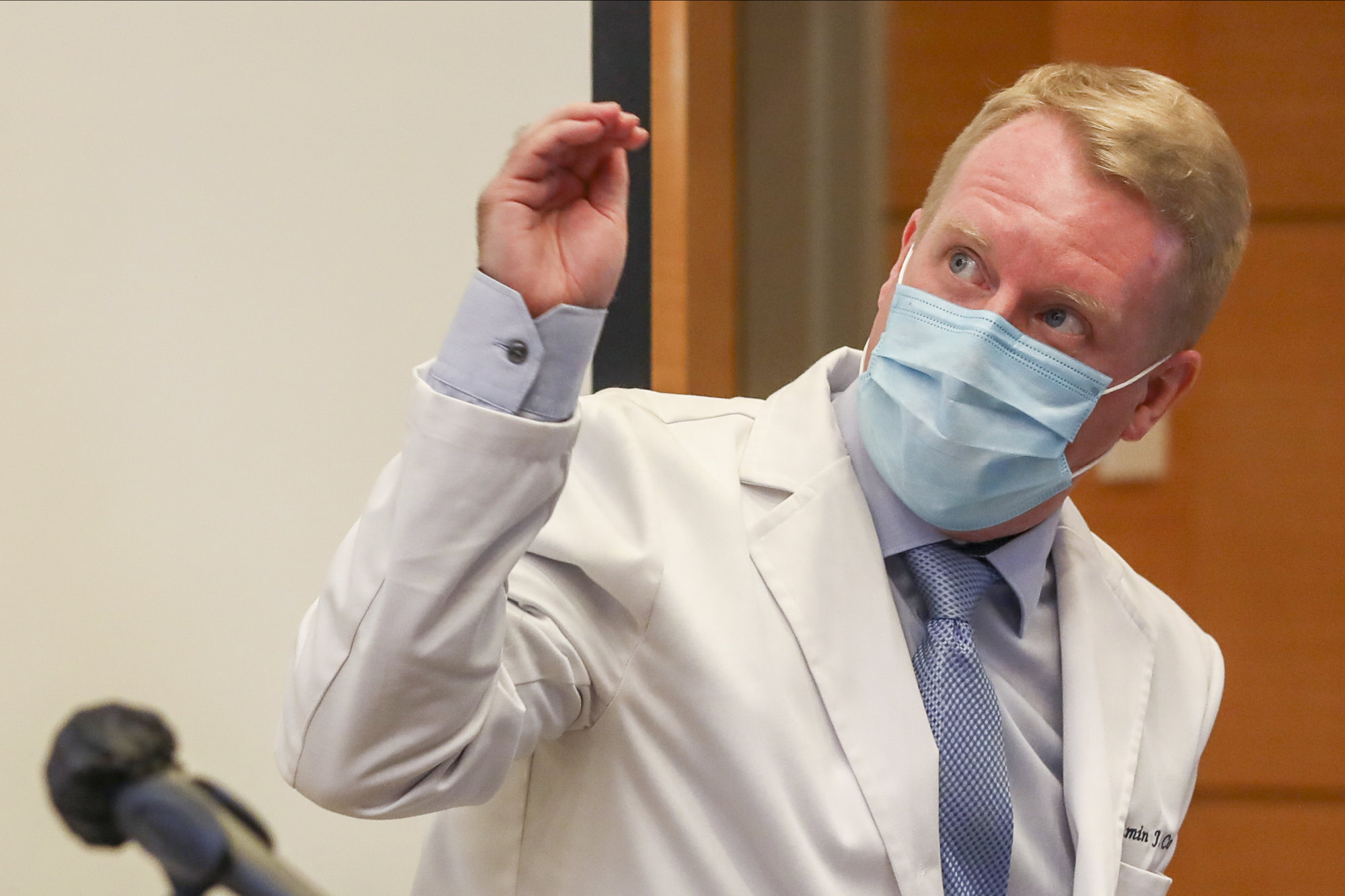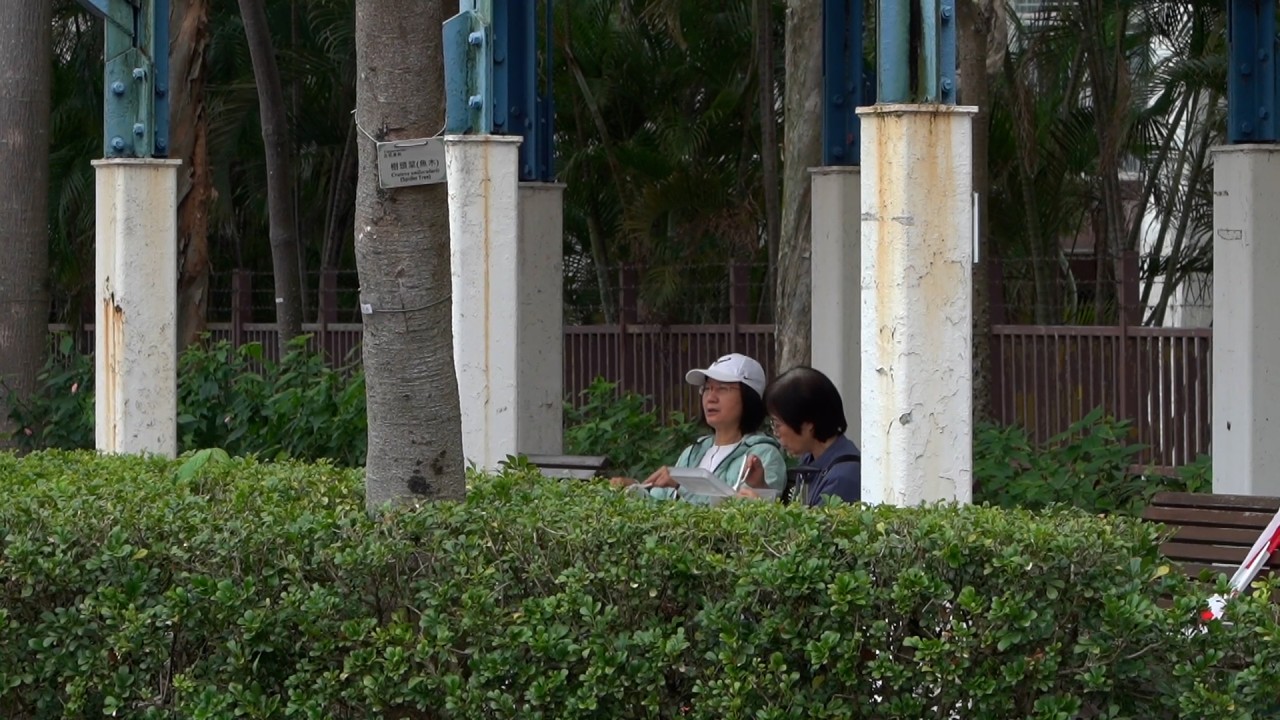
Coronavirus: Hong Kong’s easing of social-distancing curbs ‘may trigger rebound in infections, but impact unlikely to be worrying’
- Further opening up will depend on number of factors, such as virus reproduction rate, daily caseloads, positive results from lockdown operations, experts say
- Decline in daily caseload expected to slow once more activities are allowed, but spike in new infections unlikely, says Professor Yuen Kwok-yung
Hong Kong’s first phase of eased social-distancing rules may trigger a rebound of Covid-19 infections, but the impact is unlikely to be “worrying” as most residents are either vaccinated or have recovered after being infected, health experts say.
But they warned that further opening up might need to be delayed if figures for a basket of indicators rose too high, including the coronavirus’ reproduction rate, positive results from overnight lockdowns and citywide sewage surveillance.
More people are expected to head out for activities as Hong Kong prepares to ease social-distancing measures in phases from Thursday, including an extension of dine-in hours for restaurants and the reopening of premises such as gyms, sports venues and cinemas.

Professor Benjamin Cowling, a public health epidemiologist at the University of Hong Kong (HKU), said he believed that while there would be a rebound in cases, the impact would not be worrying.
“I do think there will be a rebound after social-distancing measures are relaxed, because after all, the point of those measures was to suppress transmission while they were in place,” he said.
“However, I’m not worried about the rebound because I don’t think Covid-19 poses a threat to most people’s health now that we have high vaccination coverage, plus more than 60 per cent of the population have immunity from [Omicron] BA. 2 infections in the past three months.”
About 93 per cent of the city’s population have received one dose of a Covid-19 vaccine, and 87 per cent have had two. While the official tally of positive cases has reached more than 1.1 million, various experts put an estimation of actual infections at somewhere between 2.5 million and 5 million.
Professor Yuen Kwok-yung from HKU, who also advises the government on the pandemic response, said the decline in daily Covid-19 cases would slow down when more activities were allowed, but a big rebound in the number of infections was unlikely.
Hong Kong turns corner with 946 Covid cases, first sub-1,000 mark in more than 2 months
“Even if there is a rebound, it will be a form of slower decline or plateauing of cases, rather than a significant increase to around 10,000 cases,” Yuen said.
But the professor also urged people to continue to follow social-distancing measures and wear masks properly in public areas.
During her daily press briefing on Friday, Chief Executive Carrie Lam Cheng Yuet-ngor said the government would closely monitor the epidemic situation after the Easter holiday, adding that decisions on the criteria and time for the second phase of relaxation would not be “easy”.

She reminded the public of what had happened during the Lunar New Year holiday, when infection numbers spiked after frequent social gatherings among the public.
“We imposed very stringent social-distancing measures from January 7, well before Chinese New Year and we did manage to suppress that first outbreak in the fifth wave,” Lam said. “But because of Chinese New Year and a lot of cross-family interactions and dinners and gatherings … this wave hit us very hard.”
The city leader said authorities would consider allowing premises that had remained closed during the first phase of relaxed restrictions to reopen in the following stages. Venues such as bars, pubs and karaoke parlours will remain shut.
Professor David Hui Shu-cheong, who advises the government on its pandemic response, said a range of factors would need to be taken into account when determining whether it would be safe to open up further.
One key factor is the reproduction number of the virus, which is currently maintained at about 0.5, meaning one Covid-19 patient can infect less than one person.
“If the figure is above one or approaching two, there could be an exponential increase in cases,” he said.

Other indicators included coronavirus positive rates from the citywide sewage surveillance programme and lockdown exercises in residential buildings. A return to double digits for the positive rate of lockdown operations could be a warning sign.
But if those indicators could be kept at a low level, he said the city could consider moving forward to the next phase about two weeks after the first stage of relaxation, which should provide enough time to observe whether there was any major rebound in cases.
Respiratory medicine expert Dr Leung Chi-chiu added that if the weekly number of new Covid-19 cases continued to b around 20 per cent fewer than that of the previous week, there would not be big risks in a further relaxation of measures.
Additional reporting by Sammy Heung


